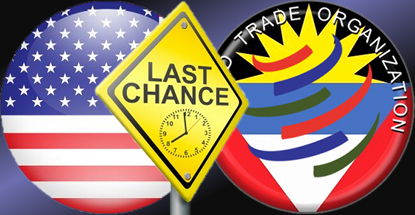 Antigua is making a last-ditch effort to resolve the country’s longstanding online gambling trade dispute with the United States.
Antigua is making a last-ditch effort to resolve the country’s longstanding online gambling trade dispute with the United States.
On Thursday, the Antigua Observer reported that Antigua’s Minister of International Trade and Foreign Affairs Charles ‘Max’ Fernandez would travel to the US over the weekend to begin a new round of negotiations with the US Trade Representative (USTR) on Tuesday (28).
Fernandez declined to offer specifics on Antigua’s strategy for attempting to break the gridlock that has prevented the two sides from bringing closure to this dispute. However, Fernandez did say that he believed the parties were “at a stage now, where there is a serious commitment, or it seems to me, there’s a serious commitment on both sides to work as quickly as possible to settle the issue.”
Antigua has been locked in a bitter 12-year trade dispute with the US over the latter country’s refusal to allow Antigua-licensed online gambling operators access to the US market. In 2003, Antigua took its claim to the World Trade Organization (WTO), whose Dispute Resolution Body ultimately sided with Antigua.
In 2006, the WTO issued a judgment awarding Antigua an annual $21m in compensation until the US relaxed its trade embargo. But the US dug in its heels and has yet to pay Antigua a penny. The WTO therefore authorized Antigua to collect these damages – which have ballooned to nearly $200m in the ensuing decade – by other means, including by offering royalty-free downloads of US intellectual property.
Antigua has yet to exercise this nuclear option, preferring to continue dialogue with the USTR. But in March, Antigua’s new Prime Minister Gaston Browne warned that, while Antigua hoped that it wasn’t “forced to resort to these remedies,” its patience with the USTR’s intransigence was wearing thin.
Although Browne has claimed that the trade dispute has cost his nation $3b in lost revenue and wages, Antigua has made good faith counteroffers that would allow the US to resolve its WTO rogue status through a one-time payment of $100m. Next week’s talks will demonstrate whether America’s oft-stated commitment to free and fair trade is a reality or merely rhetoric.
